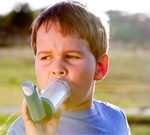
A test that can detect the genetic “fingerprint” of prostate cancer in blood could improve diagnosis, monitoring and treatment of the disease, researchers say. The test checks for prostate cancer DNA in blood in order to provide the earliest evidence that prostate cancer is active. This could help doctors monitor tumor behavior, determine if cancer has spread (“metastasized”) and choose the most appropriate treatment, according to the team at University College London Cancer Institute in the United Kingdom. The study was published March 9 in The Journal of Clinical Investigation. The next step is to assess whether this test could be used along with, or replace, the current prostate-specific antigen (PSA) test, according to the study authors. “Metastatic prostate cancer — the most dangerous late stage of the disease — can vary substantially in its treatment response and clinical progression,” lead author Dr. Anjui Wu said in a college news release. “We urgently need biomarkers that will help us determine how far along each patient’s cancer is, to determine the best course of treatment,” he explained. Corresponding author Gerhardt Attard, a professor at the institute, said researchers are testing the technique in a patient trial. The aim is to see if it can complement or replace the PSA test. “We believe the increased sensitivity and additional information we derive will significantly improve the outcomes of… read on >
























-300x200.jpg)













